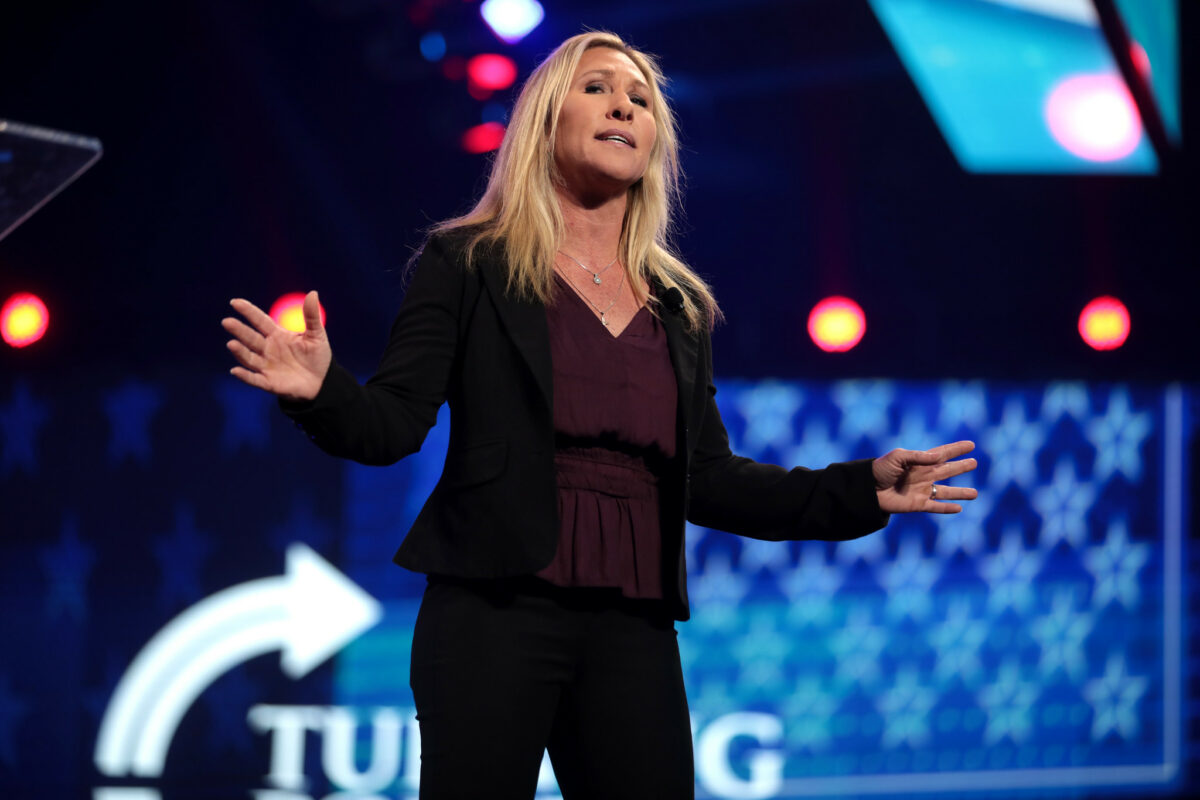Six months ago, people on the left in France faced a crucial choice. None of their candidates had gotten enough votes to make it into the presidential runoff election. On the upcoming ballot were the neoliberal president Emmanuel Macron and the neofascist challenger Marine Le Pen, who had trailed the incumbent in the first round by less than five percentage points. What to do?
Rather than sit out the decisive election and enable the far-right candidate to take power, millions of leftist voters held their nose and voted for Macron.
Now, progressives in the United States face similar choices. In key House districts and states with pivotal Senate races—including Arizona, Colorado, Florida, Georgia, Nevada, New Hampshire, North Carolina, Ohio, Pennsylvania and Wisconsin—leftist voters could tip the balance of congressional power. At this point, in the balloting that ends on Nov. 8, the choice is binary: neoliberalism or neofascism.
While the GOP is in a strong position to win a majority in the House of Representatives, the latest polling indicates that control of the Senate is on a knife’s edge. No doubt Sen. Mitch McConnell is hoping that enough progressives won’t vote for Democrats so he can run the place starting in January.
You don’t have to tell me how awful, and how corrupted by corporate money, the Democratic Party leadership is. On foreign policy, other than on such matters as climate and the Iran nuclear deal, the two major parties have similar approaches, including widely destructive militarism. But on domestic matters—while the Democrats’ tepid reformism falls far short of addressing the crises we face — their policies are vastly better than the increasingly racist Republican Party as it offers extreme versions of free-market economics and Christian fundamentalism. Claiming that there are no significant differences between the two parties is a form of super-ideological gaslighting on automatic pilot.
Abortion rights, judicial appointments, climate, environmental protection, taxation, racial justice, voting rights, labor rights, LGBTQ rights, misogyny and so many other basic matters are on the line. Yes, the Democrats are often anemic on such issues. At the same time, the Republicans are much worse. And their agenda now includes nothing less than destroying electoral democracy.
Republicans in office and even more extremist candidates seeking to join them are blending in with political scenery they’ve created to normalize gliding farther and farther rightward. They’re the electoral shock troops of a party now fully engaged in what scholar Jason Stanley, in his book “How Fascism Works,” calls “fascist politics.” What seemed dangerously outrageous not long ago can soon come to seem normal—becoming even more dangerous.
In Stanley’s words, “Normalization of fascist ideology, by definition, would make charges of ‘fascism’ seem like an overreaction, even in societies whose norms are transforming along these worrisome lines…. The charge of fascism will always seem extreme; normalization means that the goalposts for the legitimate use of ‘extreme’ terminology continually move.”
Progressives have overarching responsibilities to oppose the corporate power that ushers in oligarchy and also to oppose the far-right forces that lead to tyranny. Focusing on just one of those responsibilities while dodging the other just won’t do.
It’s accurate to say that the neoliberalism of the Democratic Party has been creating and exacerbating conditions that fuel right-wing engines. But at certain times—which definitely include the next two weeks, through Election Day on Nov. 8—electoral battles come to a decisive fork in the road. We will be living with the consequences of this crossroads for the rest of our lives.
